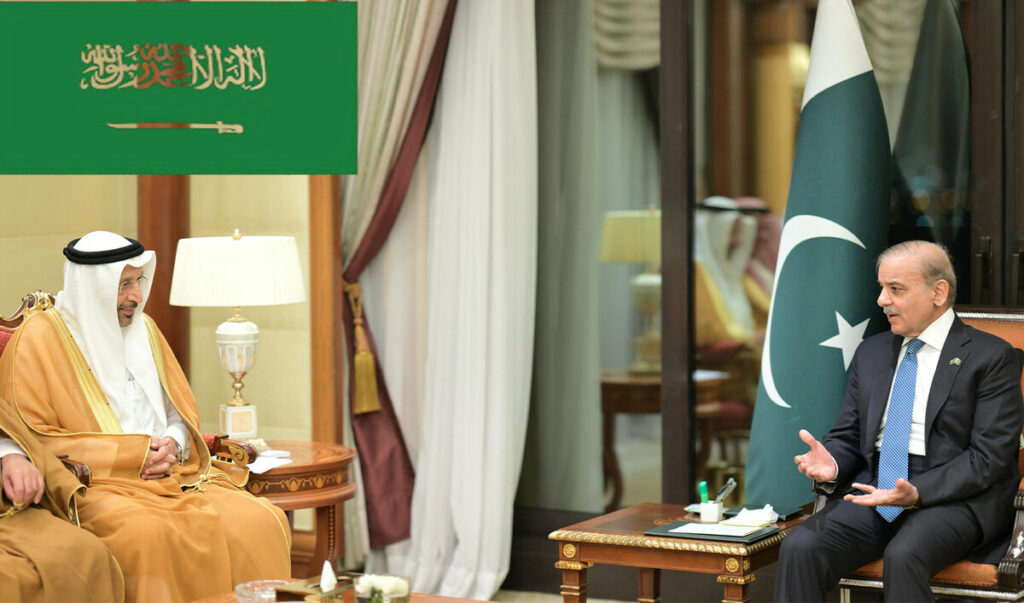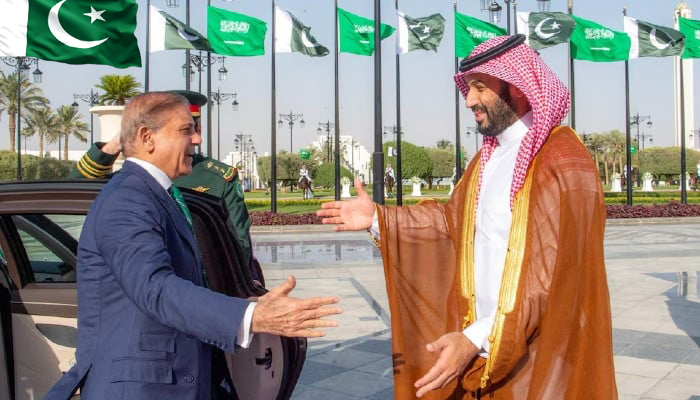Analysts suggest that the Pakistan-Saudi Arabia defence agreement,
signed on Wednesday, marks a turning point in Gulf security, highlighting shifting alliances and a growing decline in Arab reliance on US security guarantees.
Late Wednesday evening in Riyadh,
Prime Minister Shehbaz Sharif and Saudi Crown Prince Mohammed bin Salman formalized a Strategic Mutual Defence Agreement. Under the pact, an attack on either nation will be treated as an assault on both—representing the strongest security commitment ever established between the two allies.
Foreign policy expert Uzair Younus described the deal as a move that positions Pakistan as the Arabian Peninsula’s primary security provider. He linked the development to recent attacks in Doha, which forced Gulf nations to reassess their defence priorities.
Former ambassador Touqir Hussain, based in Washington,
emphasized that the pact reaffirms a decades-old strategic partnership. He highlighted that the timing—just after the Doha Summit—signals Gulf nations’ intent to pursue concrete security measures rather than rely on symbolic rhetoric. According to Hussain, the shift indicates diversification of security ties, potentially strengthening links with China and reducing dependency on the United States, while also opening doors to easing tensions with Iran.
Veteran diplomat Javid Husain,
who previously served as Pakistan’s envoy to Iran, called the agreement a major milestone. He stressed the clause that considers an attack on one country as an attack on the other, a deterrent message aimed at rivals such as India and Israel.
Academics have also underscored how the agreement formalizes long-standing but informal defence cooperation. Dr Rabia Akhtar, Dean at the University of Lahore, noted that while nuclear deterrence is not explicitly included, strategic ambiguity could still serve Riyadh’s interests.
senior journalist Syed Talat Hussain described the pact as a game-changing combination of Pakistan’s military strength and Saudi Arabia’s vast resources, calling it both timely and strategic.
The Pakistan-Saudi defence pact not only deepens bilateral relations but also reshapes the broader Gulf security architecture, signaling a new era of regional cooperation beyond Washington’s shadow.
RIYADH – Pakistan and Saudi Arabia have signed a Strategic Mutual Defence Agreement,
a landmark deal expected to reshape South Asian and Middle Eastern geopolitics while strengthening military cooperation between the two long-time allies.
Experts Call It a Game-Changing Defence Partnership
International relations expert Dr. Huma Baqai told Geo.tv that the pact could alter the power balance in South Asia and the Gulf. She argued that the recent 11-hour war cemented Pakistan and China’s strategic dominance, possibly prompting Riyadh to formalize this alliance. According to Baqai, the agreement may trigger a domino effect, encouraging other Gulf and Arab states to seek similar defence arrangements.
Former foreign secretary Aizaz Ahmad Chaudhry echoed these views, calling the pact a “major breakthrough”. He said Saudi Arabia had turned to its “most sincere friend” in Pakistan, adding that while defence cooperation already existed, the new clause treating aggression against one as aggression against both was unprecedented.
Details of the Strategic Mutual Defence Agreement
The accord commits both nations to collective security: any attack on one country will be treated as an attack on both. A senior Saudi official, speaking to Reuters, clarified that the pact reflects longstanding defence cooperation rather than a response to any single event.
The official described it as a comprehensive defence framework that includes all forms of military cooperation and deterrence, underscoring the seriousness of Riyadh and Islamabad’s renewed strategic vision.
Readmore What makes a great company reputation? Start with happy employees = Happy Companies – WellWise … 2025
Shehbaz Sharif’s State Visit to Riyadh
Prime Minister Shehbaz Sharif signed the agreement during his official visit to Riyadh, at the invitation of Crown Prince Mohammed bin Salman (MBS). Upon arrival at Al-Yamamah Palace, the prime minister received a royal protocol welcome, including a guard of honor by the Saudi Armed Forces.
Both leaders held high-level talks with their delegations, reviewing decades of strategic, defence, and brotherly ties. The discussions also covered regional tensions, the Palestinian issue, and Israel’s recent aggression in Doha. Both sides strongly condemned Israeli actions, reaffirming their shared stance on Palestine as central to lasting peace in the Middle East.
Deepening a Partnership Built on Brotherhood and Islamic Solidarity
The joint statement from the PM’s Office highlighted that the agreement builds upon nearly 80 years of historic partnership rooted in Islamic solidarity, shared strategic interests, and close military cooperation.
Prime Minister Shehbaz expressed gratitude to MBS for the warm welcome, aerial escort by Royal Saudi Air Force F-15 jets, and the 21-gun salute upon arrival. In turn, the crown prince extended best wishes to Pakistan and reaffirmed Saudi Arabia’s commitment to strengthening ties.
Pakistan-Saudi Defence Pact: Implications for Regional Stability
The pact signals more than just military cooperation; it underscores a strategic realignment in Gulf security, where reliance on traditional Western security guarantees is waning. Analysts suggest the move could pave the way for stronger ties with China, new alignments in the Gulf, and greater deterrence against regional rivals such as India and Israel.
With top Pakistani leaders,
including Deputy Prime Minister Ishaq Dar, Army Chief Gen. Asim Munir, Defence Minister Khawaja Asif, and Finance Minister Aurangzeb present at the signing, the agreement reflects Islamabad’s commitment at the highest level.
The Pakistan-Saudi Arabia defence pact is not just a historic milestone but a game-changing step in reshaping Gulf security architecture, with long-term implications for regional peace, deterrence, and alliances.


